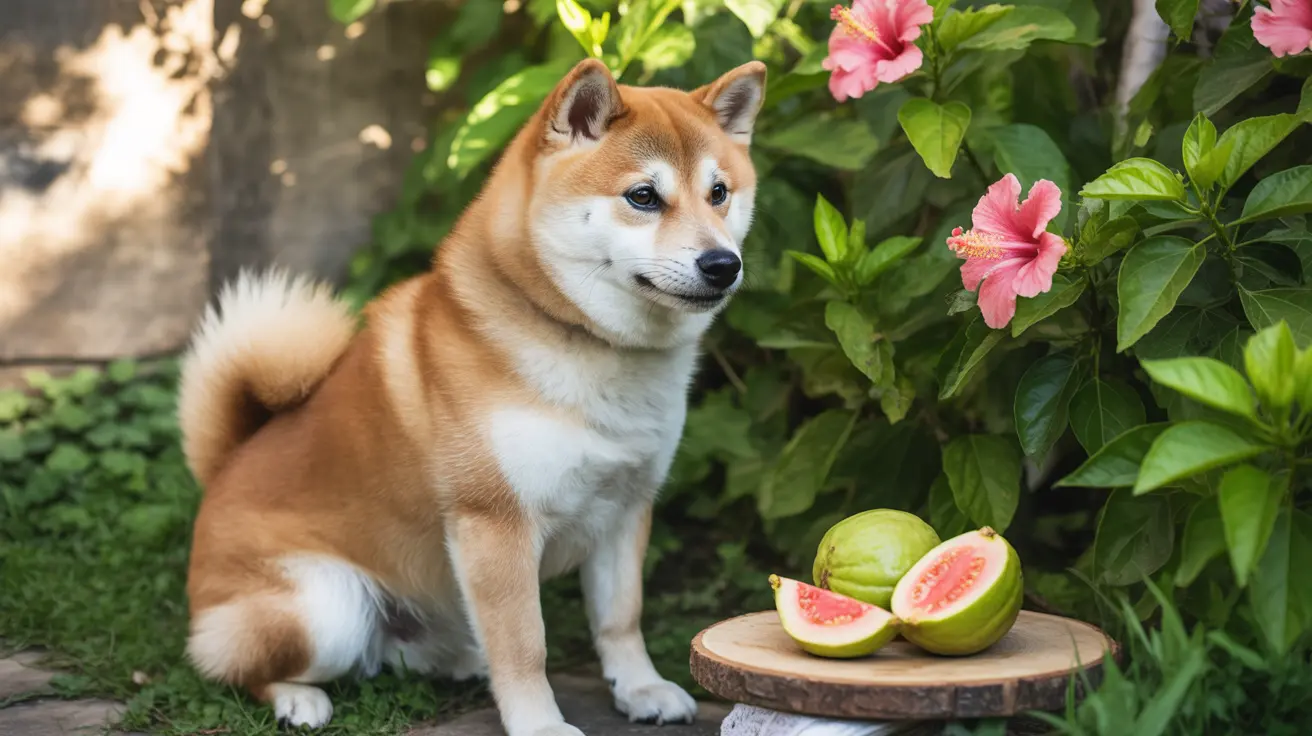If you're wondering whether dogs can safely enjoy guava, you'll be happy to know that this tropical fruit can be a healthy addition to your pet's treat rotation when served properly. Rich in vitamins, minerals, and antioxidants, guava offers several nutritional benefits for dogs, but there are important guidelines to follow when feeding this fruit to your canine companion.
In this comprehensive guide, we'll explore everything you need to know about feeding guava to dogs, including proper preparation methods, potential health benefits, and important safety precautions to keep in mind.
Safe Preparation of Guava for Dogs
Before offering guava to your dog, proper preparation is essential to ensure safety:
- Remove all seeds and rind
- Cut into small, bite-sized pieces
- Serve only fresh, ripe guava
- Avoid processed guava products
- Wash thoroughly before serving
Health Benefits of Guava for Dogs
When fed in moderation, guava can provide several nutritional benefits for your dog:
Vitamin and Mineral Content
- Vitamin C (4x more than oranges)
- Vitamin A for eye health
- Vitamin K for blood health
- Essential B vitamins
- Minerals including potassium, magnesium, and calcium
Digestive Health Benefits
The fiber content in guava can support healthy digestion when fed in appropriate amounts. This can help maintain regular bowel movements and promote gut health.
Potential Risks and Precautions
While guava is generally safe for dogs, there are several important considerations:
Choking Hazards
Seeds and rind can pose serious choking risks and should always be removed before serving.
Digestive Issues
Some dogs may experience stomach upset, particularly when first introducing guava or if too much is consumed. Signs to watch for include:
- Vomiting
- Diarrhea
- Abdominal discomfort
- Loss of appetite
Proper Serving Guidelines
Follow these guidelines for safe guava consumption:
- Start with a small piece to test tolerance
- Limit treats to 1-2 small pieces per serving
- Feed only occasionally, not daily
- Monitor your dog for any adverse reactions
- Consider your dog's size when determining portion size
When to Avoid Guava
Some dogs should not eat guava, including:
- Dogs with diabetes (due to natural sugar content)
- Pets with sensitive stomachs
- Dogs with known fruit allergies
- Those with certain health conditions (consult your vet)
Frequently Asked Questions
Can dogs safely eat guava, and how much should I give them?
Yes, dogs can safely eat fresh guava in moderation. For medium-sized dogs, offer 1-2 small, bite-sized pieces as an occasional treat, not daily. Always remove seeds and rind before serving.
What are the health benefits of feeding guava to my dog?
Guava provides vitamin C, antioxidants, fiber, and essential minerals that support immune health, digestion, and overall wellness. The fruit's nutrients can help maintain healthy skin, coat, and bones.
Why should I remove guava seeds and rind before giving it to my dog?
Seeds pose a choking hazard and may contain trace amounts of harmful compounds. The rind is difficult to digest and can cause intestinal blockage or upset. Always remove both before feeding guava to your dog.
Are there any risks or side effects of feeding guava to dogs?
Potential risks include digestive upset, choking hazards from seeds, and complications for dogs with diabetes due to natural sugars. Some dogs may also have allergic reactions or sensitivity to new foods.
Is guava paste or processed guava safe for dogs to eat?
No, guava paste and processed guava products are not safe for dogs. These often contain added sugars, preservatives, and other ingredients that can be harmful to your pet's health.
Remember to always consult with your veterinarian before introducing new foods to your dog's diet, especially if your pet has existing health conditions or dietary restrictions.






